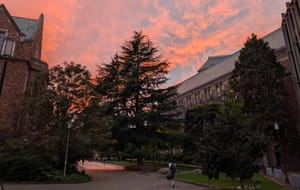In the print era, the cost of interacting with multiple information sources was high so there were incentives for newspapers to present a complete view of news, entertainment, local affairs, and so on, to local audiences.
In the network environment, that cost goes down and there is an incentive to specialize and syndicate.
The Economist had an interesting discussion of this recently and argued that newspapers should focus on where they can make a distinctive impact. A local or regional newspaper cannot compete with the New York Times, for example, for international coverage, so should not try to, it argues.
The whirlwind that swept through newsrooms harmed everybody, but much of the damage has been concentrated in areas where newspapers are least distinctive. Car and film reviewers have gone. So have science and general business reporters. Foreign bureaus have been savagely pruned. Newspapers are less complete as a result. But completeness is no longer a virtue in the newspaper business. Just look at the fate of Otis Chandler’s creation.
Thanks to family connections, Chandler ended up in control of the Los Angeles Times in 1960. The paper he inherited was parochial and conservative, reflecting the city it served. Chandler jettisoned the anti-union dogma and set about building a west-coast rival to the New York Times. His paper was heavy on foreign news and serious, objective reporting. The result was hugely impressive–but not, as it turned out, suited to the internet era. In the past few years the paper has suffered repeated staff cuts. In 2007 it was acquired by a property magnate and in 2008 filed for bankruptcy protection.
The problem with such newspapers is that, although they do much that is excellent, they do little that is distinctive enough for people to pay for it. The Los Angeles Times’s foreign reporting is extremely good. But it is hard to argue that it is better than the stuff supplied by the New York Times or foreign papers–sources to which the residents of Los Angeles now have unfettered, largely free access via their laptops and iPhones. Similarly, it has never been clear why each major newspaper needs its own car reviewer: a Corolla is a Corolla, whether it is driven in Albuquerque or Atlanta. And by extension, it is not clear why presidential candidates or sport teams require huge journalistic entourages. Papers should concentrate on what they do best, which means, in many cases, local news and sport. If the rest is bought in from wire services or national outfits, readers are unlikely to complain–as long as there is enough competition between those larger providers to keep up standards (and thanks to the internet there probably is now). Specialisation generally means higher quality. [Not dead yet: Newspapers have cut their way out of crisis. More radical surgery will be needed]
How many larger providers should there be? What should the local specialties be? What is the distinctive impact of the local paper?
It struck me that libraries face similar questions. What should be done locally and what should be taken from external providers? Where should library effort be spent, and where should common solutions be good enough?



